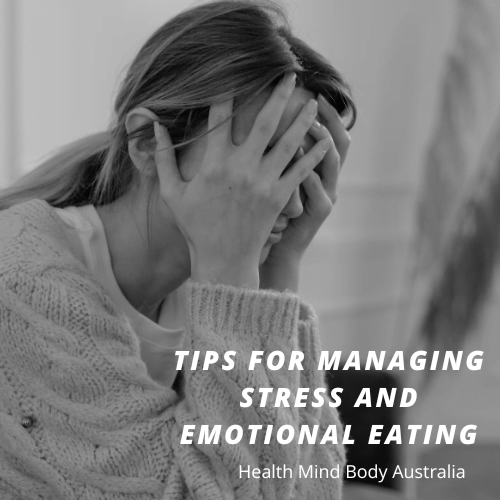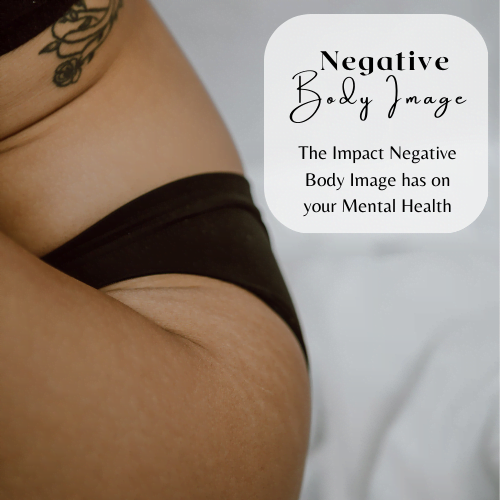This page contains affiliate links. If you choose to make a purchase after clicking a link, I may receive a commission at no additional cost to you.
Tips for Managing Stress and Emotional Eating as a Mum
Being a mum is a fulfilling and rewarding role, but it also comes with its fair share of stress and emotional challenges.
The demands of parenting, juggling multiple responsibilities, and managing the needs of your family can leave you feeling overwhelmed and emotionally drained.
During these moments, it’s not uncommon to turn to food as a source of comfort or distraction, leading to a cycle of emotional eating.
However, emotional eating can have detrimental effects on both your physical health and emotional well-being.
In this blog post, we will explore practical tips for managing stress and emotional eating as a mum, empowering you to develop healthier coping mechanisms and cultivate a balanced relationship with food.
By implementing these strategies, you can regain control over your emotions, enhance your overall well-being, and create a positive and nurturing environment for yourself and your family.
What is Stress
Stress is a natural and automatic response that our bodies and minds experience when we perceive a threat, demand, or challenge.
It is a physiological and psychological reaction that prepares us to either confront the situation or flee from it, commonly known as the fight-or-flight response.
Stress can be triggered by various factors, including external events or circumstances such as work pressure, financial difficulties, relationship issues, or major life changes and internal factors such as negative thoughts, worries, or self-imposed expectations.
What one person may find stressful, another may not, as individuals have different tolerance levels and coping mechanisms.
When we encounter a stressful situation, our bodies release stress hormones, primarily cortisol, and adrenaline, which initiate a series of physiological changes.
These changes include increased heart rate, elevated blood pressure, heightened alertness, and a release of glucose into the bloodstream to provide immediate energy for action.
In short bursts, stress can be beneficial and even necessary for our survival and performance.
It can sharpen our focus, boost motivation, and help us react quickly in challenging situations.
This acute stress response is often referred to as “good stress” or “eustress.”
However, when stress becomes chronic or overwhelming, it can have negative effects on your physical and mental health.
Prolonged exposure to stress hormones can lead to issues such as fatigue, weakened immune function, sleep disturbances, digestive problems, anxiety, depression, and difficulty concentrating.
Chronic stress can also increase the risk of developing long-term health conditions like cardiovascular disease, obesity, and diabetes.
Managing stress effectively is crucial for maintaining overall well-being.
This can be achieved through various stress management techniques, including:
Regular Exercise
Physical activity helps reduce stress hormones, promotes the release of endorphins which is a feel-good chemical, and improves overall mood.
Engaging in physical activity serves as a healthy distraction from stressors and emotional triggers.
It provides a productive outlet for pent-up emotions, allowing you to release tension and clear your mind.
Relaxation Techniques
Practices such as deep breathing exercises, meditation, yoga, and progressive muscle relaxation can induce a state of calm and relaxation, counteracting the physiological responses of stress.
Healthy Lifestyle Habits
Prioritising adequate sleep, maintaining a balanced diet, limiting caffeine and alcohol intake, and avoiding tobacco and drug use contribute to a healthier stress response.
A healthy lifestyle plays a crucial role in regulating emotions.
When you nourish your body with nutritious foods and avoid substances that can disrupt your emotional stability, you create a more stable foundation for emotional well-being.
By maintaining a balanced diet, you provide your body with the necessary nutrients to support brain health and neurotransmitter production, which are vital for emotional regulation.
Time Management
Effective planning, setting priorities, and organising tasks can help reduce feelings of being overwhelmed and increase a sense of control.
When you manage your time effectively, you gain a sense of control over your daily tasks and responsibilities.
This can greatly reduce feelings of overwhelm, as you are better equipped to prioritise and tackle tasks in a structured manner.
By breaking down tasks into manageable chunks and creating a realistic schedule, you can alleviate the stress that often leads to emotional eating.
Social Support
Seeking support from friends, family, or support groups can provide emotional comfort and perspective during stressful times.
During stressful times, having a strong support system can provide emotional comfort and understanding.
Sharing your feelings and experiences with trusted individuals can help alleviate stress and provide a sense of relief.
Talking to someone who listens without judgment and offers empathy can help you process your emotions and reduce the urge to turn to food for comfort.
Self-Care
Engaging in activities that bring joy and relaxation, such as hobbies, spending time in nature, reading, or practicing mindfulness, can help alleviate stress and promote well-being.
It’s important to note that everyone experiences and copes with stress differently.
Finding the strategies that work best for you and seeking professional help if stress becomes unmanageable are essential steps toward maintaining a healthy stress response and overall quality of life.

Understanding Emotional Eating
Emotional eating is a complex behaviour that stems from the connection between our emotions and food.
It involves using food as a way to cope with or regulate your emotional states, rather than consuming it for nourishment or physical hunger.
Emotional eating can become a problematic habit, leading to weight gain, guilt, and a negative impact on overall well-being.
One of the primary factors that contribute to emotional eating is stress.
When we experience stress, our bodies release cortisol, a hormone that can increase appetite and cravings for high-calorie, comfort foods.
These foods, such as sugary snacks or fatty treats, often provide a temporary sense of pleasure or relief from negative emotions.
Emotional eating is not limited to negative emotions alone.
Some individuals may also turn to food to enhance positive feelings or celebrate special occasions.
For example, indulging in cake or dessert during a moment of joy or celebration is a common practice.
Boredom can also trigger emotional eating.
When we feel bored or unstimulated, food can provide a source of entertainment or distraction.
Eating becomes a way to fill the void or pass the time, even when we are not physically hungry.
Loneliness or social isolation can also contribute to emotional eating.
Food can serve as a substitute for companionship or comfort, providing a temporary sense of connection or pleasure.
This pattern of eating may offer a momentary escape from feelings of loneliness or sadness.
Additionally, certain cultural and societal factors can influence emotional eating.
Food is often associated with comfort, celebration, and socialisation, leading to the development of emotional connections between specific foods and emotions.
These associations can be deeply ingrained and difficult to break.
It is important to note that emotional eating is not a reflection of weakness or lack of willpower.
It is a complex behaviour influenced by various factors, including your upbringing, past experiences, and the way we have learned to cope with emotions throughout your lives.
Recognising emotional eating patterns and understanding the triggers that lead to this behaviour is the first step towards managing it effectively.
By developing alternative coping mechanisms, practicing mindfulness, and seeking support, it is possible to break the cycle of emotional eating and cultivate a healthier relationship with food and emotions.
Tips for Managing Stress and Emotional Eating
By implementing some of the tips below, you can help cultivate healthier habits, improve your emotional well-being, and find a balanced approach to managing stress and food.
Practice Mindful Eating
One of the most effective ways to combat emotional eating is by practicing mindful eating.
Mindful eating involves being fully present in the moment while consuming food.
By paying attention to the flavours, textures, and smells, you become more attuned to your body’s signals and less likely to eat in response to emotions.
Create a calm eating environment by eliminating distractions such as television or smartphones.
Take small bites, chew slowly, and savour each mouthful.
Find Alternative Coping Mechanisms
Instead of turning to food as a coping mechanism, explore alternative methods to deal with your emotions.
Engage in activities that bring you joy and relaxation, such as taking a hot bath, going for a walk, reading a book, or practicing deep breathing exercises.
Discover non-food-related strategies that provide comfort and help you navigate challenging emotions.
Plan Ahead
Planning ahead is a powerful tool to combat emotional eating.
Keep healthy snacks readily available for times when hunger strikes, and pre-plan your meals.
By doing so, you can avoid impulsive and unhealthy food choices when stress or emotional triggers arise.
Practice Self-Care
Prioritising self-care is essential for managing stress and emotional eating effectively.
Ensure you are getting enough sleep, engaging in regular exercise, and dedicating time to activities that bring you happiness and relaxation.
Simple acts like taking a soothing bath, listening to your favourite music, or spending quality time with loved ones can go a long way in nurturing your emotional well-being.
Keep a Food and Mood Journal
Maintain a journal to track your food choices and emotional state throughout the day.
This practice can help you identify patterns and triggers for emotional eating.
By recognising the connections between your emotions and eating habits, you can develop strategies to address them.
Seek Support
Reach out to friends, family, or a support group to share your experiences and emotions.
Talking to others who may have similar struggles can provide validation, encouragement, and helpful advice.
Additionally, consider seeking professional help from a therapist or counsellor who specialises in stress management and emotional eating.
Practice Stress-Relieving Activities
Engage in activities that help alleviate stress and promote relaxation.
This could include practicing yoga or meditation, engaging in creative pursuits like painting or writing, listening to soothing music, or spending time in nature.
Find activities that resonate with you and make them a regular part of your self-care routine.
Build a Strong Support Network
Surround yourself with positive, supportive individuals who understand and respect your goals.
Share your intentions to manage stress and emotional eating with your loved ones and ask for their understanding and encouragement.
Having a strong support network can make a significant difference in your journey toward healthier habits.
Challenge Negative Thoughts
Negative thoughts and self-criticism often accompany emotional eating.
Practice self-compassion and challenge negative thinking patterns.
Replace negative thoughts with positive affirmations and focus on self-care, self-acceptance, and nurturing your overall well-being.
Practice Stress-Reduction Techniques
Explore different stress-reduction techniques that work for you, such as mindfulness meditation, deep breathing exercises, or progressive muscle relaxation.
These techniques can help you manage stress in the moment and prevent it from triggering emotional eating.
Celebrate Non-Food Achievements
Instead of turning to food as a reward or comfort, find alternative ways to celebrate your achievements or milestones.
Treat yourself to a massage, buy yourself a small gift, or engage in an enjoyable activity that doesn’t involve food.
Shifting the focus away from food can help break the association between emotions and eating.
Benefits of Managing Stress and Emotional Eating
Some of the benefits of Managing Stress and Emotional Eating can include:
Improved Mood
By successfully managing stress and emotional eating, you can expect a noticeable improvement in your mood.
Reduced anxiety and depression, increased energy levels, and enhanced focus are among the positive outcomes you may experience.
Weight Loss
Emotional eating often leads to weight gain, but adopting healthy strategies to manage it can help you shed those unwanted kilos.
Through mindful eating, planning ahead, and embracing alternative coping mechanisms, you will be less likely to succumb to unhealthy food choices.
Improved Health
Managing stress and emotional eating positively impacts your overall health.
By avoiding excessive consumption of unhealthy foods, you can reduce the risk of developing chronic conditions like diabetes, heart disease, and high blood pressure.
Prioritising self-care and adopting healthier coping mechanisms can significantly enhance your physical well-being.
Enhanced Emotional Well-being
By developing effective strategies to manage stress and emotional eating, you can cultivate greater emotional well-being.
Reduced reliance on food as a coping mechanism allows you to explore healthier ways of dealing with your emotions, leading to a more balanced and positive emotional state.
Improved Body Image
Emotional eating can often contribute to negative body image and dissatisfaction with one’s physical appearance.
By managing stress and emotional eating, you can develop a healthier relationship with your body and cultivate a more positive body image.
This shift in perspective can lead to increased self-acceptance and improved overall self-esteem.
Increased Self-Awareness
Engaging in mindful eating and practicing alternative coping mechanisms requires self-awareness.
By tuning into your emotions, thoughts, and behaviours surrounding food, you can gain a deeper understanding of your triggers and patterns.
This increased self-awareness empowers you to make conscious choices and take control of your eating habits.
Improved Relationships
When stress and emotional eating are effectively managed, it can positively impact your relationships.
By focusing on self-care and prioritising your emotional well-being, you can show up more fully and authentically in your interactions with loved ones.
This can foster stronger connections, improved communication, and a healthier support system.
Enhanced Self-Control
Successfully managing stress and emotional eating requires self-discipline and self-control.
As you develop and practice these skills, you may notice improvements in other areas of your life where self-control is valuable, such as work, finances, and personal goals.
Strengthening your self-control muscle can have far-reaching benefits beyond managing stress and emotional eating.
Overall Improved Quality of Life
Managing stress and emotional eating can contribute to an overall improved quality of life.
By reducing the negative impacts of stress and developing healthier coping mechanisms, you can experience increased energy, improved physical health, heightened self-esteem, and a greater sense of overall happiness and fulfillment.
Remember, everyone’s journey is unique, and the benefits experienced may vary from person to person.
It’s important to approach managing stress and emotional eating with patience, self-compassion, and a willingness to adapt your strategies as needed.
Conclusion – Tips for Managing Stress and Emotional Eating as a Mum
As a mum, managing stress and emotional eating is essential for your overall well-being and the well-being of your family.
By understanding emotional eating and implementing effective strategies, you can break free from the cycle of using food as a coping mechanism.
Mindful eating, finding alternative coping mechanisms, planning ahead, and prioritising self-care are all valuable tools in managing stress and emotional eating.
Through mindful eating, you can develop a deeper connection with your body and its signals, making it easier to distinguish between genuine hunger and emotional cravings.
Finding alternative coping mechanisms empowers you to explore healthier ways of dealing with your emotions, such as engaging in activities that bring you joy and relaxation.
Planning ahead helps you make intentional and nutritious food choices, preventing impulsive decisions driven by stress or emotional triggers.
Lastly, prioritising self-care ensures that you are nurturing your physical and emotional well-being, enabling you to navigate the challenges of motherhood more effectively.
The benefits of managing stress and emotional eating are far-reaching.
Improved mood, weight loss, enhanced overall health, and increased self-awareness are just a few of the positive outcomes you can expect.
Moreover, cultivating self-control and enjoying an overall improved quality of life become possible.
Remember, managing stress and emotional eating is a journey that requires patience, self-compassion, and a willingness to adapt your strategies as needed.
Embrace the process, celebrate small victories, and seek support when needed.
By taking proactive steps to manage stress and emotional eating, you are prioritising your health, happiness, and the ability to be the best mum you can be.
Join me on my Socials and come and say hi!
Amy xx
This page contains affiliate links. If you choose to make a purchase after clicking a link, I may receive a commission at no additional cost to you.






